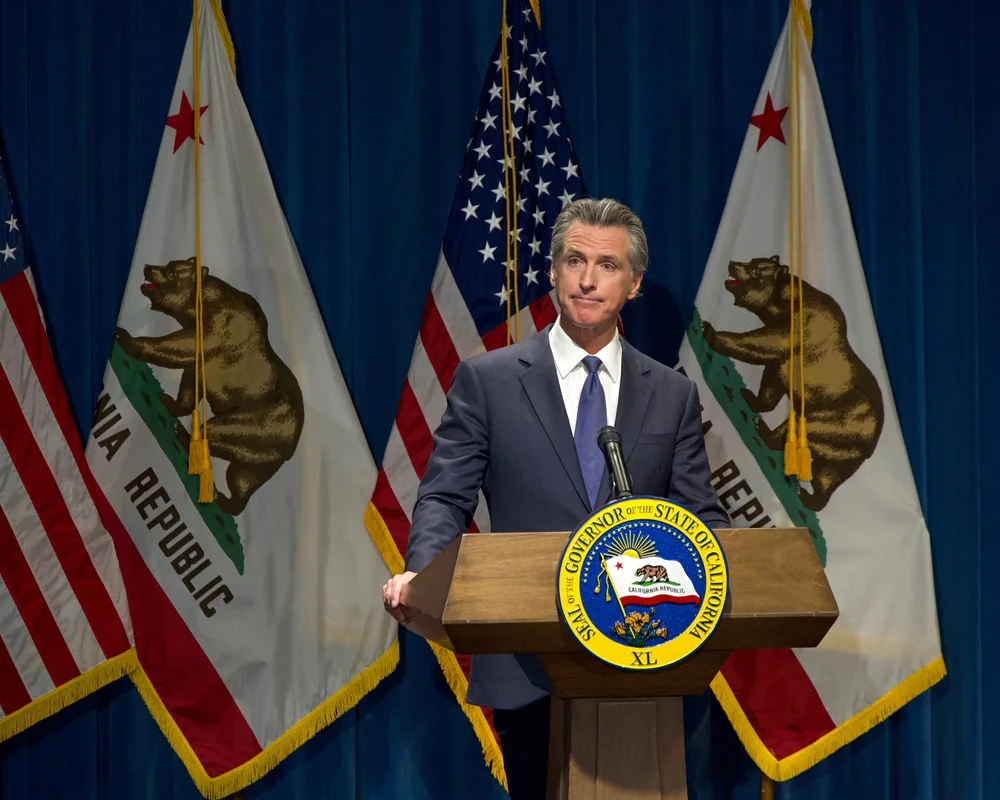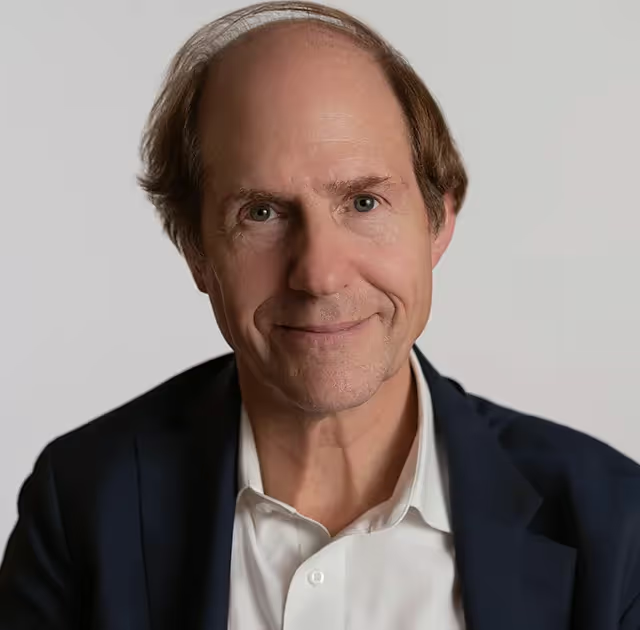.avif)
Sludge, Stagnation, and Dynamism
The pervasive problem of "sludge"—bureaucratic obstacles such as excessive paperwork and confusing forms—hinders innovation, entrepreneurship, and access to essential services. Reducing sludge would promote human welfare and unleash dynamism.
Readers are asked to make allowances for what was originally an oral presentation delivered on May 8, 2024 at The Austin Symposium. Click here to download it as a PDF.
Sludge consists of the obstacles one encounters when trying to begin a new company, trying to innovate, or trying to start an entrepreneurial activity that might change the lives of thousands or tens of thousands. If the government requires entrepreneurs to find a license before they can start their landscape architect business, for example, they are encountering sludge. That sludge might take six weeks, six months, or a year to resolve. It might involve forms that are unintelligible, it might impair economic growth, and it might be an obstacle to one’s sense of individual dignity. There are permit requirements all over the world that reduce freedom and crush welfare. They are dynamism’s enemy because they make it difficult for people to do things that will improve their lives.
.avif)
Here is the result of the United States government’s recent sludge audit. The question is how many hours in paperwork burdens does the United States impose on people? The answer is now in the vicinity of 10-11 billion hours. These billions of hours have a considerable human cost. The government imposes them on students, higher-ed administrators, doctors, nurses, hospital workers, patients, and truck drivers. People all over the United States who are trying to go about their day and forms too confusing and daunting to navigate occupy that day are facing sludge. Parenthetically, by way of footnote, the editors of an academic journal asked me to contribute an article. The invitation is an honor, but the website is so sludge pervaded, I am considering refusing to submit because sludge has made it too difficult.
.avif)
That said, there is some good news: Joe Biden’s Executive Order 14058. You've probably never heard of it because even though Republicans like it, they have no incentive to cheer the current president. The Democrats’ focus is on other things, so they do not have any incentive to cheer either. It calls out the time taxes sludge imposes on people and suggests that the imposition is predominantly made on people who are trying to do business, to innovate, or to get services from the U.S. government. E.O. 14058 includes an extraordinary list of initiatives and reforms. It is based on the idea that the best way to obtain trust is to earn it. If you do something that makes customer service better, whether you are a startup or the Department of Transportation, then trust, as a performance byproduct, will increase.
.avif)
We will now turn to behavioral science. Cognitive scarcity is a feature the human brain shares with cats, dogs, horses, and mosquitoes. Cognitive scarcity compliments economic scarcity. The number of things to which our focus and energy can attend is a subset of the number of things that are relevant. That means we must set priorities and if you are busy, because you are an entrepreneur trying to get started, or an innovator who is focusing on your innovations, or if you are lonely because you do not have friends, or if you’re hungry because you do not have food, or if you are really not feeling very well, these priorities are often set extremely rapidly. If you are poor, the problem of cognitive scarcity jumps sky high. If you are hungry, when I flash the letters CDAEQRKLMA on the screen, you will immediately see the word “cake,” because because the letters C A K E shot out from that random assortment. This is based on data, not speculation. Had you just eaten lunch, you would not see “cake” among those letters. If you were hungry and focused on food, you would see CAKE, and the number of other priorities you would be able to focus on would be small. Take this as a poignant but not comprehensive reason sludge can be a growth barrier.

If you are poor, and asked to solve an economic problem that you personally face before you take an intelligence test, your intelligence falls by eight or nine I.Q. points, which is the same point drop people who did not sleep the night before the test experience. If you are not poor and you are asked to solve a challenging economic problem before you take an intelligence test, your intelligence does not fall at all. If you are poor and asked to solve an economic challenge that you personally face and then take a test that measures your self control capacity—your executive function—it collapses, because executive function requires cognitive plenitude, not cognitive scarcity. When asked to solve an economic problem, people facing economic distress experience fluid intelligence and self control diminution. This is a problem people in economic distress face, but this diminution also has parallels in people who have other kinds of challenges, including people who have cognitive scarcity just because they are very busy.
Scarcity and sludge combined is horrible. Busy people who are suffering from time scarcity or poor people who are suffering from resource scarcity face the most sludge. This is a cruelty that those who impose sludge do not typically intend. It is also a cruelty with severe growth consequences in both wealthy and poor countries. By stymying efforts to make changes or introduce efficiencies and reforms that would make more and better employment, sludge has obstructed U.S. growth and job creation. Starting today, we need a sludge reduction movement born of social science research, work in business schools, and work by concerned people who want to ensure opportunity for all.
My coauthor and friend Daniel Kahneman recently died. I want to make a little note on his final paper. It is a triumph of the human spirit that he wrote at approximately ninety years old. It grew out of a provocative paper he wrote with Angus Deaton, which said that well being increases in step with income up to about $70,000 or $90,000 per year, at which point it levels off. The paper suggested that if you are poor, your measured well being in terms of how you experience life jumps rapidly, but after $70,000 or $90,000, it flattens. (Bracket for now the measurement reliability for well being and just notice that this was Deaton and Kahneman’s finding.)
A few years ago, a graduate student named Matthew Killingsworth wrote a paper based on data more refined than that Deaton and Kahneman used. He showed that their conclusions were wrong: in terms of well being, more money really is better. Kahneman’s reaction to this fundamental attack on his paper was to call Killingsworth and offer to co-write a specified hypothesis paper to see whose findings were correct. Their collaboration would be adversarial; they would agree on how the data would have to look for one or the other’s findings to be convincing and they would agree to interrogate the data with their competing hypotheses in mind. Killingsworth, probably astounded to get this call from the great Kahneman, agreed. The completed paper, which emerged just a few months ago, showed that Killingsworth was more correct than Kahneman.
The basic finding is that measured well being keeps increasing alongside economic increase. That is a point for Killingsworth with one qualification: the people at the bottom fifteen percent of the happiness distribution who are struggling with well being saw their life get better and better between $10,000 and $100,000 per year before flattening. Why does their measured well being flatten after $100,000? Kahneman and Killingsworth were not sure, so they only speculated cautiously that those suffering from depression or anxiety really need to earn more than $20,000 per year and more income is better, but then after $100,000, those mental health struggles remain. Take this paper to be a tribute. It is state of the art on the relationship between dynamism related to economic growth and measures of well being that are not monetary.
.avif)
Many of you arrived here by airplane. Those who did I hope used the traveler reduction strategy TSA PreCheck. On average, it reduces the time to get through security to only five to seven minutes. TSA PreCheck’s monetized welfare benefit for travelers is high. I also hope many of you use Global Entry, which is a sludge reduction strategy compatible with U.S. government national security goals for people hurrying home to the U.S. What America now needs, if promoting innovation is a goal, is the functional equivalent of Global Entry for everything. That would be a world with much less sludge.


Dynamism is also connected to the educational domain. Here is a staggering paper from 2018 that shows a problem at the University of Michigan—one of our greatest public universities give or take Texas or Berkeley. Michigan had a problem. The students who were attending were smart and high income. It was not the world’s worst problem, but smart, low-income students were not attending, which is baffling, because if they applied, they received free tuition and fees on admission. The problem was that they were not applying, so Michigan intervened to take away the sludge. The intervenors told the students, parents, and principals that if low-income students applied, they would receive free admission, free tuition, a nice song, and no fees. All the intervention said was that students did not have to do anything to get into Michigan. The result was that application likelihood and enrollment more than doubled. The effect persisted through two years. It is staggering that this intervention closed by half the income gap in college choice among Michigan's high achieving students. No money was necessary. All that Michigan needed to close the gap was information about something where information acquisition would have entailed the incursion of sludge. As an aside, there is also a simple intervention to reduce U.S. gun deaths—a three to five day waiting period.

Occupational licensing and permit requirements are sludge. Sludge is public enemy number one when it comes to building things, such as residential housing. And we need to build a lot of things in the United States. Sludge also fills our healthcare and educational systems. David Cutler has found that sludge is a significant contributor to U.S. healthcare costs. I had lunch with six students at a very distinguished university about eighteen months ago and asked them about their university’s healthcare system. Four of them said it was great. One student said that it had not been great for her because she suffers from depression and treatment required navigating so many processes and talking to so many people and filling out so many forms that the process itself started to make her really, really depressed. She ended up giving up on trying to find treatment at her university.

Now we will turn to the problem of desperation. Opinions on the Supplemental Nutrition Program for Women, Infants and Children may differ, but I personally love the program. In a recent year, more than 2.4 million infants in the U.S. were eligible. Eighty percent didn’t participate in the program and sludge prevented fifty percent of eligible pregnant women from participating. Getting into the program requires navigating processes. Keep in mind the problem of scarcity, which the relevant population in particular faces.

Courtesy of 1980, we have a law called the Paperwork Reduction Act, but it has not fulfilled its promise. It was my job to oversee the Paperwork Reduction Act for four years. My presentation today is somewhat of a mea culpa. Keep in mind that the 11 billion hours of paperwork the government imposes has remained fairly steady over time. The national sludge audit uncovered at the macro level what this slide is showing you right now. The Department of Education imposes 90 million annual hours of paperwork burdens on people, including students, administrators, and professors. The Department of Agriculture imposes 127 million hours on farmers, many of whom have little time to fill out forms. The Department of Labor imposes 144 million hours on workers, employers, and others who fall in a general category. The Department of Transportation has north of 200 million hours. The Department of Treasury is the prize winner at 7 billion hours. These are numbers, but keep in mind the high level of human distress these obstacles and barriers cause.
Because we have been with each other for part of a day now, I will tell you a slightly personal story. I am speaking to you here in my academic capacity, but I am also a Department of Homeland Security bureaucrat. A personage—not just a random person—in Washington, D.C., called me a few months ago asking me to help his son get a green card so that he could visit his dying grandmother. I said I could not help. The personage who called me is well known, important, and amazing. My ethics caused me to feel very guilty about my no answer. The personage was enraged that I could not help. The rage affected me, so I called my colleagues at D.H.S. and asked if there was anything they could do to help. They told me there was nothing they could do. I backed off and told my friend I couldn’t help. In response to that unwelcome news, my friend lamented that after spending hours on D.H.S.’s website trying to speak to someone directly, it was too difficult to navigate. I gave the only answer I could think of: call a lawyer. The personage did call a lawyer and called me back the next day and told me that the lawyer knew exactly what to do and solved the problem in ten minutes. But this was not a triumphant call; it was an outrage call. What about everyone who does not know to call a lawyer? That is a great question.
This number-pervaded chart shows countless everyday stories exactly like that. Some involve little companies trying to get workers from a country where they're available. Others involve someone trying to start a business who needs a permit and has no idea how to get it. Texas needs a paperwork reduction act, Mississippi needs one, and California really needs one. My state Massachusetts needs one. The paperwork reduction act should have all and more of the Federal Paperwork Reduction Act’s content.

What is the relationship between sludge and nudge? How are they connected with one another? I will define sludge as friction stemming from paperwork and associated burdens, time spent standing in line, in-person interview requirements, complicated forms, and places the government requires you to go. These are all sludge. This chart might clarify. A low-friction, make-it-easy nudge includes radically simplified processes and automatic enrollment in something that benefits people. There is also harmful make-it-easy nudge. An automatic enrollment program exists, for example, that entitles you to 10% off if you ever go to a war-zone and want to stay in a local hotel. It is fraud. People do not want to go to those hotels, but they are convinced to enroll in those programs. And enrollment is really easy. Consider that a nudge for evil.
Then there are deliberation promoting nudges, such as an are-you-sure-you-want-to, or a cooling off period. Those cooling off periods are sludge. They impose friction for good, but my focus is on the chart’s bottom right—permitting nightmares, long waiting times, filling out forms, Stephen King novels. I follow Stephen King on X, but he does not follow me. I really want him to write a book about sludge and make it really scary. I am hopeful that many of you are thinking right now that the sludge Texas, or Austin, or Washington D.C. imposes might have a purpose beyond simply creating terrible burdens for people. Let us now discuss five defenses of how sludge attempts to balance dynamism and other salutary goals optimally.

Sludge’s most provocative defense is that ordeals can be a sorting mechanism. Suppose that Taylor Swift is playing at UT Austin the night after next. How are we going to sort access? We could impose an ordeal on people, meaning that if you start standing in line at approximately 3:30 today, and you are toward the front of the line, you have concert access. If that is a sensible sorting mechanism, it is because time—like money—can measure intensity of need or desire. It ends up reasonably sorting who deserves access to the thing. Data is synced as far as suggesting that this rationale is potentially true in principle but does not work in practice. It is typically very ineffective as a sorting mechanism.
The most boring justification for sludge is privacy and consent: you require people to provide information because we do not want the government accessing that information without people's knowledge or approval. That is completely fair, but it does not justify existing sludge levels. The most pragmatic justification is that if the government is giving money to people to do something, start a technological enterprise, for example, the government needs to acquire performance data. How is the enterprise going? The most important justification is program integrity. We want to ensure that deserving people are receiving permits. It is possible we should excise permit requirements entirely, but so long as they are in place, we want to make sure the sorting is the right sorting. Promoting deliberation is another sludge justification. That sludge is are-you-sure-you-want-to sludge. It is designed to ensure that people aren't reckless or impulsive.
Environmental protection and worker safety are also familiar sludge justifications. I am going to tell you a personal story about nineteen-year-old me and the National Environmental Policy Act. When I was a college student, I worked for the Army Corps of Engineers writing environmental impact statements, which had the honorable goal of promoting consideration of significant environmental effects before the government issued permits. I saw very intimately that the government designed these statements, which impose sludge on the private and public sector, to stop development in ways that were often not environmentally magnificent, but instead promoted the interests of self-interested private groups. This does not suggest that we should end the National Environmental Policy Act, but we should rethink it with the goal of ensuring sludge is at optimal levels.
Let us talk about how to do that. For Texas, Oklahoma, Georgia, New Jersey, New York especially, we need to manage the existing sludge stock with determination and laughter. There is also a flow of new sludge that we must ferociously restrain. How do we manage this new sludge flow? First, we need a quantitative cost benefit test, or a qualitative test if a quantitative one is not possible. If the government imposes sludge at X amount on people who are trying to do X, what would we lose if we cut that in half? These are fully answerable questions. I have talked about Global Entry and TSA PreCheck. Both of those programs emerged from cost benefit tests, which suggested that in both cases, they are close to no regrets policies. Since we need someone to manage those programs, they are not entirely all benefit and no costs, but they come close. Cost benefit balancing with respect to the flow of new sludge is good for America.

We can also do a lot to manage the existing sludge flow stock. One possibility is to impose a vague standard that requires significant reductions from every part of state government by a certain date. Specific standards are also an option. They could require, for example, eliminating at least 3 million hours in paperwork burdens by a specific date. We could require specificity not just in terms of hours, but in terms of concrete reforms, such as requiring that forms are pre-populated, so people do not have to fill them out, or that forms will be annual rather than quarterly and filed electronically rather than through paper. We could also do pre-tests on existing forms to see if the actual, real-world time burden exceeds the anticipated time burden. If we find that it does, we could eliminate a certain number of forms.

Here is something that Citizenship and Natural Immigration Services (USCIS) did: it issued a Federal Register notice asking what barriers and burdens people faced when dealing with the office. They emphatically included businesses and entrepreneurs in this inquiry. They received 7000 comments. USCIS marched through all 7000 comments trying to find the ones to which they could manageably respond. The result was USCIS’s rule, issued in 2022, that increased the automatic extension period for employment authorization from 180 days to 540 days. American employers danced in the streets because their workers could continue working rather than going to file. The workers themselves were not dancing, but they did breathe a big sigh of relief.
Here is a suggestion for permitting requirements of various sorts; we should consider doubling or tripling the length of time that people can enjoy their existing permit. If the permit is issued for four years, we should extend it to eight. That automatically removes backlogs and leads to relevant dynamism increases. The Department of Homeland Security issued a 20-million-hour challenge, saying we must eliminate 20 million hours in the paperwork burdens we impose on people in short order. If you remember the earlier slide listed D.H.S.’s paperwork burden total as 200 million, so this reform required an aggressive goal of a nearly instant 10% decrease. D.H.S. beat that; they eliminated 21 million hours of sludge. Some people I know in D.C. who deal with the government have noticed this change because they are getting approvals within a week rather than a year. That is sludge reduction.
Executive orders are usually just a few pages of high-level writing. Executive Order 14058 is very unusual because it’s lengthy and says such things as “eliminate permit requirements,” “make things automatic,” “simplify for farmers,” and “if people are eligible for this, and you know that because they've applied and they're also eligible for that, then don't make them apply, they’re in automatically.” Here is an example: E.O. 14058 requires the Secretary of State to design a new online passport renewal experience that eliminates the need to mail anything. This is not going to drive a lot of U.S. innovation, but it will remove much of the frustration and burden imposed on people whom the current systems require to show up in an unfamiliar place and deal with unfamiliar people when they are just hoping to get to London for vacation.
.avif)

This is Administrator Power, who happens to be my wife. The E.O. 14058 directs her to revise and review regulations, forms, instructions, etc., so that countries in USAID Works can receive the resources to which they have a legal right. It might be people in Ukraine who are dealing with war, it might be people in Pakistan who are dealing with flooding, it might be people in a nation trying to stand on its own feet with development. The idea is to eliminate the sludge. Let me tell you a very inside baseball story. As the Biden Administration was writing the order, there were a lot of interagency processes making sure it was okay. I had some engagement with the USAID process and having such engagement, I would ask my wife if everything in the process was correct. Both as a good bureaucrat and as a good spouse, you do not inflict on an agency head to whom you are married an executive order that she hates. That would not be good for the marriage or for the country. She told me that the order was coming along well, she was happy with it, and it was consistent with her agency’s goal. Then during the interagency process, there was a question about whether USAID was happy with the order. And I was pleased to be able to say that the agency was happy and enthusiastic about the order. And in response, Administrator Power issued a 3 million hour challenge to her staff to eliminate 3 million hours of paperwork burdens with the goal of promoting dynamism in the nations with which the United States works.
Finally, a question for all of us: what is the most precious resource human beings have? There are a lot of candidate answers. As the COVID pandemic recedes in our rearview mirror, there is one answer that stands out above all others. It is a four-letter word: time. We should find, in the interests of equality of permission, in the interests of liberty, in the interest of growth, and—tip of the hat to Kahneman—in the interest of welfare, ways to give other human beings more time.
Cass Sunstein is currently the Robert Walmsley University Professor at Harvard. He is the founder and director of the Program on Behavioral Economics and Public Policy at Harvard Law School.
Download as PDF
This paper was originally delivered as oral remarks during the 2024 Austin Symposium on Economic Dynamism.
Economic Dynamism

Unlocking Public Value: A Proposal for AI Opportunity Zones
Governments often regulate AI’s risks without measuring its rewards—AI Opportunity Zones would flip the script by granting public institutions open access to advanced systems in exchange for transparent, real-world testing that proves their value on society’s toughest challenges.

The Causal Effect of News on Inflation Expectations
This paper studies the response of household inflation expectations to television news coverage of inflation.

Downtowns are dying, but we know how to save them
Even those who yearn to visit or live in a walkable, dense neighborhood are not going to flock to a place surrounded by a grim urban dystopia.

The Housing Crisis
Soaring housing costs are driving young people towards socialism—only dispersed development and expanded property ownership can preserve liberal democracy.

The Economic and Constitutional Vices of California’s “Once-only” Wealth Tax
California's proposal to tax billionaires seems at first menacing, but could have drastic negative consequences for the future of the state.
.webp)
California’s Proposed Billionaire Tax and Its Portents for Normal People
The deeper significance of California's billionaire tax is in how it redefines what it means to own property in the United States.


.avif)

.jpeg)




.jpg)





